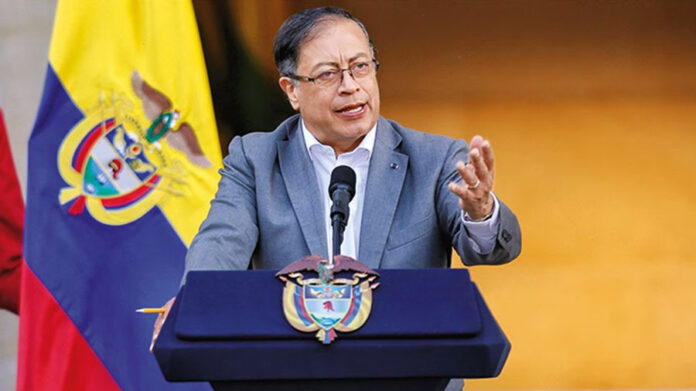
(Update) This is a developing story: Trump scores win as Colombia agrees to accept migrant flights in face of tariff threats
By Samuel A. Lopez – USA Herald
[WASHINGTON, D.C.] – In a decisive move to protect American interests, President Donald Trump has imposed a 25% tariff on all Colombian goods and services entering the United States, with the potential to escalate to 50% within a week. This strategic decision responds directly to Colombian President Gustavo Petro’s refusal to accept two U.S. military air transport planes carrying deported citizens.
Critical Insights
- Insurance Overhaul: The 25% tariffs necessitate a reevaluation of insurance premiums and coverage policies to mitigate increased risks for businesses.
- Contractual Challenges: Pre-existing contracts may face breaches, leading to potential litigation as businesses struggle to meet new economic demands.
- Business and Consumer Strain: Increased operational costs for businesses and higher prices for consumers could reshape market dynamics and purchasing behaviors.
The imposition of tariffs by the Trump administration is a clear message aimed at safeguarding U.S. economic interests against what it perceives as retaliatory actions by Colombia. President Petro’s refusal to accept deported U.S. citizens—particularly his stance against receiving them in handcuffs—has been a catalyst for this strong economic response. “A migrant is not a criminal and must be treated with the dignity that every human being deserves,” Petro declared on his X.com account, igniting a diplomatic and economic confrontation.
The insurance sector is on high alert as these tariffs introduce new layers of risk and uncertainty. Insurers must traverse the increased costs associated with importing Colombian goods, which directly impacts premiums for businesses involved in international trade. According to the International Trade Commission (ITC), tariffs can significantly alter risk assessments, leading to higher insurance premiums to cover the additional costs imposed on businesses.
Laura Martinez, a senior insurance analyst, explains, “The sudden 25% tariff disrupts our existing risk models. We need to reassess premiums to account for these unforeseen expenses, which could lead to a nationwide increase in insurance costs for businesses importing from Colombia.” This adjustment period may result in coverage disputes, especially where policies were previously underinsured against such economic shifts.
Policyholders, particularly those engaged in importing and exporting, face significant challenges in maintaining coverage that aligns with their new financial realities. The National Association of Insurance Commissioners (NAIC) highlights that businesses may encounter difficulties in fulfilling contractual obligations due to the inflated costs caused by tariffs (NAIC Reports).
Contracts established under pre-tariff conditions may become untenable, leading to potential litigation. For instance, clauses that did not account for tariff-induced cost increases might be grounds for breach of contract claims. Legal experts foresee a surge in disputes related to shipment compliance and contract compliance, and breach of contractas businesses struggle to meet their obligations under the new economic sanctions imposed on Columbia.
U.S. businesses, both large and small, will immediately feel the strain of the 25% tariffs on Colombian imports. From crude oil and coffee to precious stones and electronics, the increased costs force companies to either absorb the additional expenses or pass them onto consumers.
Colombia exports a variety of products and services to the United States. Some of the primary exports include:


